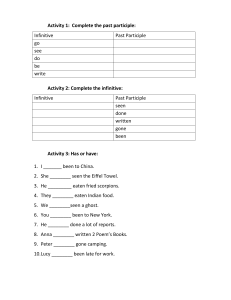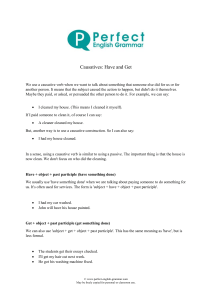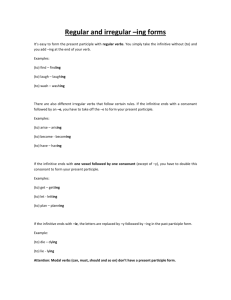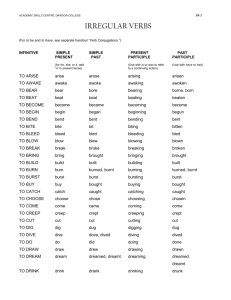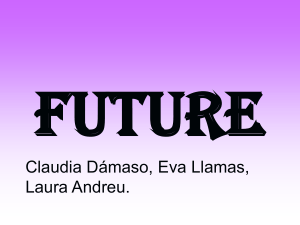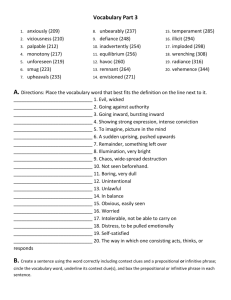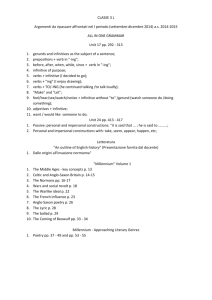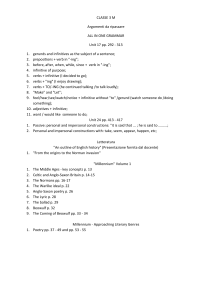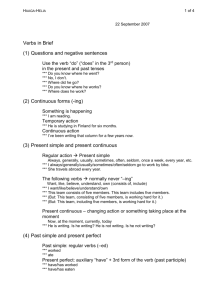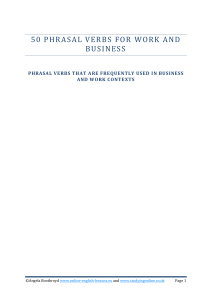Things you should remember from last week Vocabulary Vue: Sight
advertisement
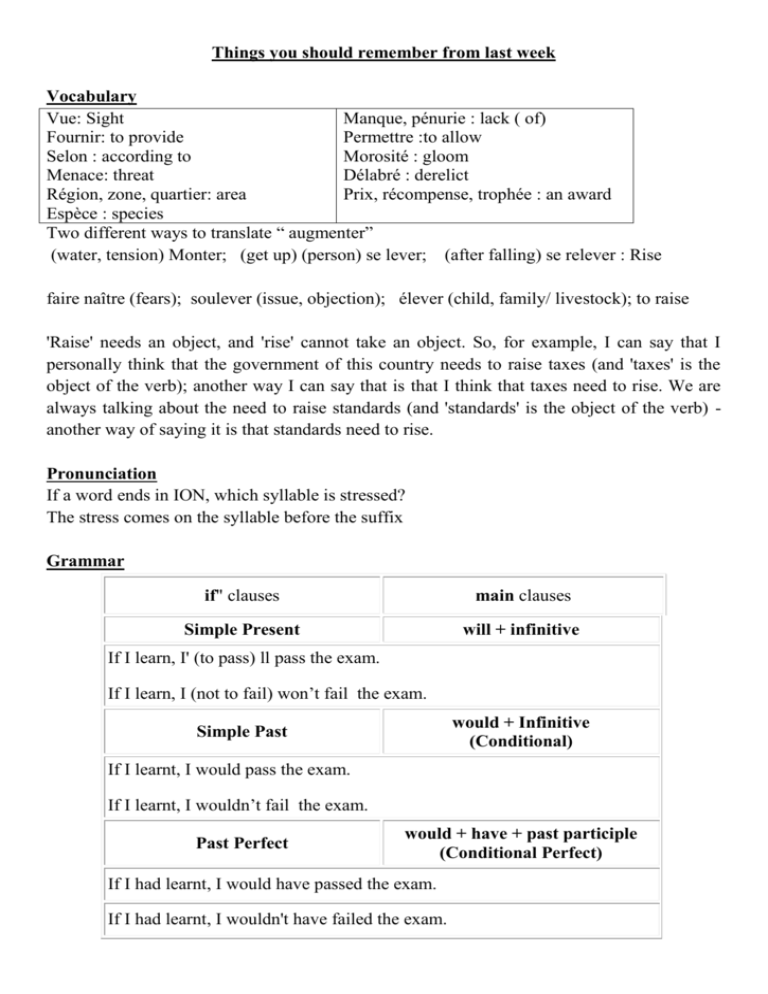
Things you should remember from last week Vocabulary Vue: Sight Manque, pénurie : lack ( of) Fournir: to provide Permettre :to allow Selon : according to Morosité : gloom Menace: threat Délabré : derelict Région, zone, quartier: area Prix, récompense, trophée : an award Espèce : species Two different ways to translate “ augmenter” (water, tension) Monter; (get up) (person) se lever; (after falling) se relever : Rise faire naître (fears); soulever (issue, objection); élever (child, family/ livestock); to raise 'Raise' needs an object, and 'rise' cannot take an object. So, for example, I can say that I personally think that the government of this country needs to raise taxes (and 'taxes' is the object of the verb); another way I can say that is that I think that taxes need to rise. We are always talking about the need to raise standards (and 'standards' is the object of the verb) another way of saying it is that standards need to rise. Pronunciation If a word ends in ION, which syllable is stressed? The stress comes on the syllable before the suffix Grammar if" clauses main clauses Simple Present will + infinitive If I learn, I' (to pass) ll pass the exam. If I learn, I (not to fail) won’t fail the exam. would + Infinitive (Conditional) Simple Past If I learnt, I would pass the exam. If I learnt, I wouldn’t fail the exam. Past Perfect would + have + past participle (Conditional Perfect) If I had learnt, I would have passed the exam. If I had learnt, I wouldn't have failed the exam. Things you should have written down today Vocabulary Contraire, opposé contradictory Juste fair qui prête à controverse. Controversial Revendiquer to claim Conseillers advisers Montrer to point out S’attendre à to expect means moyen /adj mean méchant En moyenne on average relativement ’relatively Pronunciation Celebrities LEB suffixe –ity accent avant avant dernière syllabe Politicians TI règle de lion Seriously SE ious règle de lion LY est un suffixe faible pas d’influence sur la p Political LI ic est un suffixe fort accent sur la syllabe qui précède Agenda GEN type memento avant-dernière syllabe Raising ing suffixe faible, ne peut être accentué. Grammar Irregular verbs Infinitive Past Simple Past participle Infinitive Past Simple Past Participle speak spoke spoken keep kept kept eat ate eaten find found found deal dealt dealt buy bought bought tell told told give Gave given
